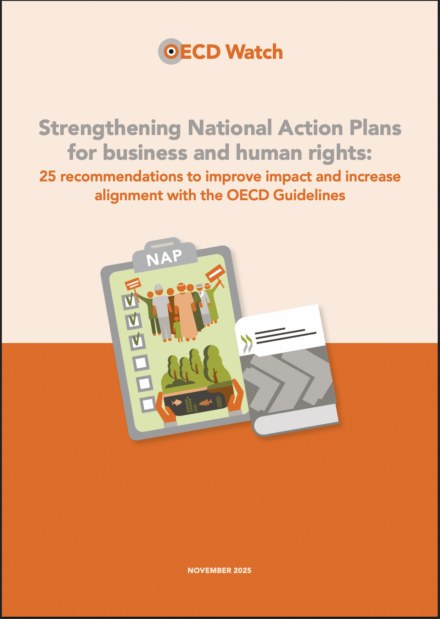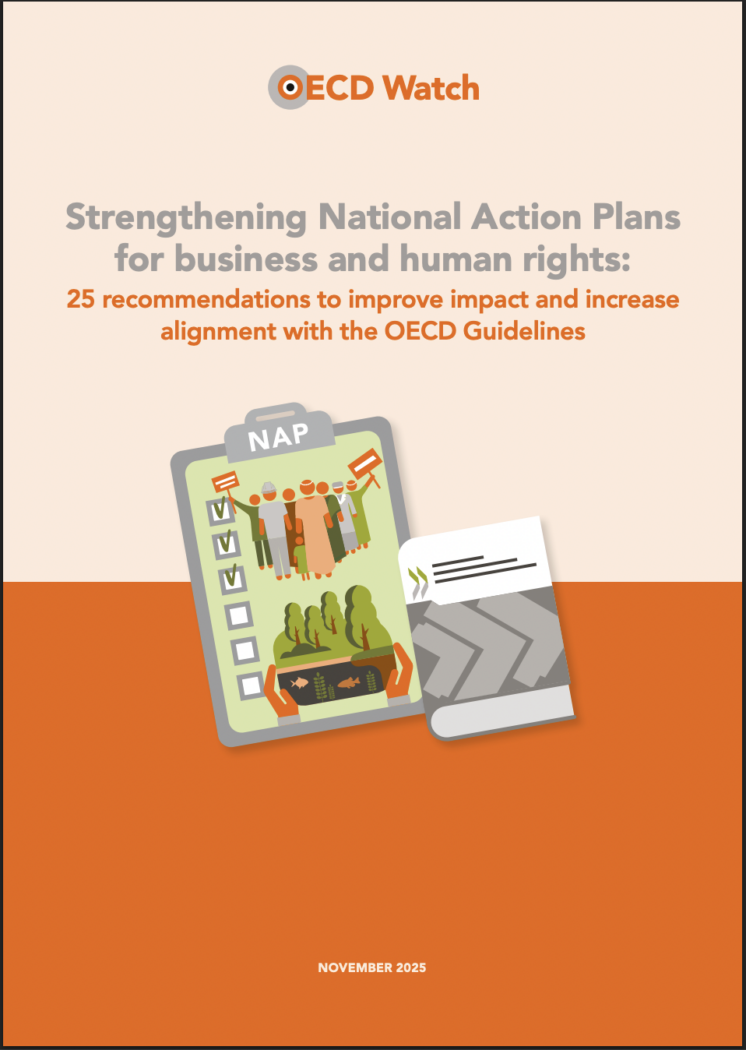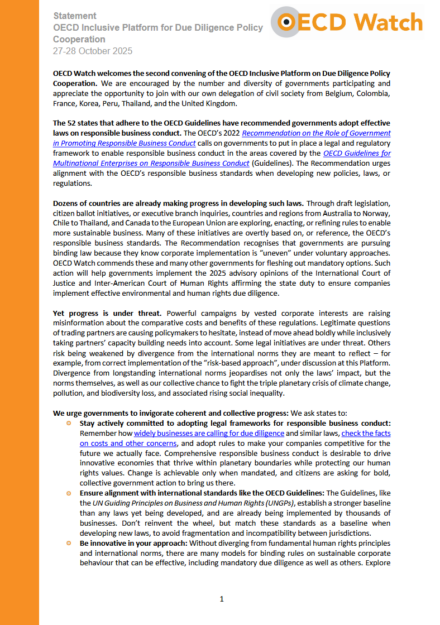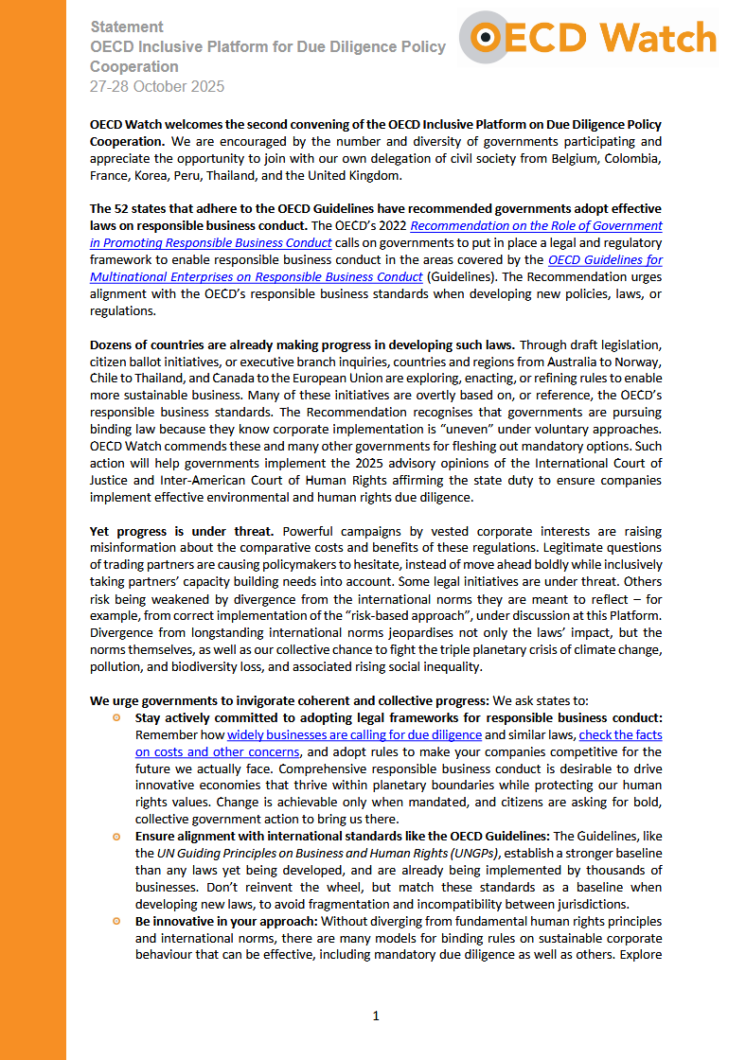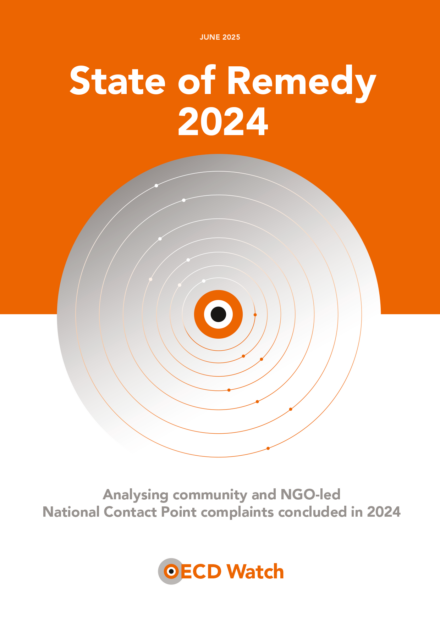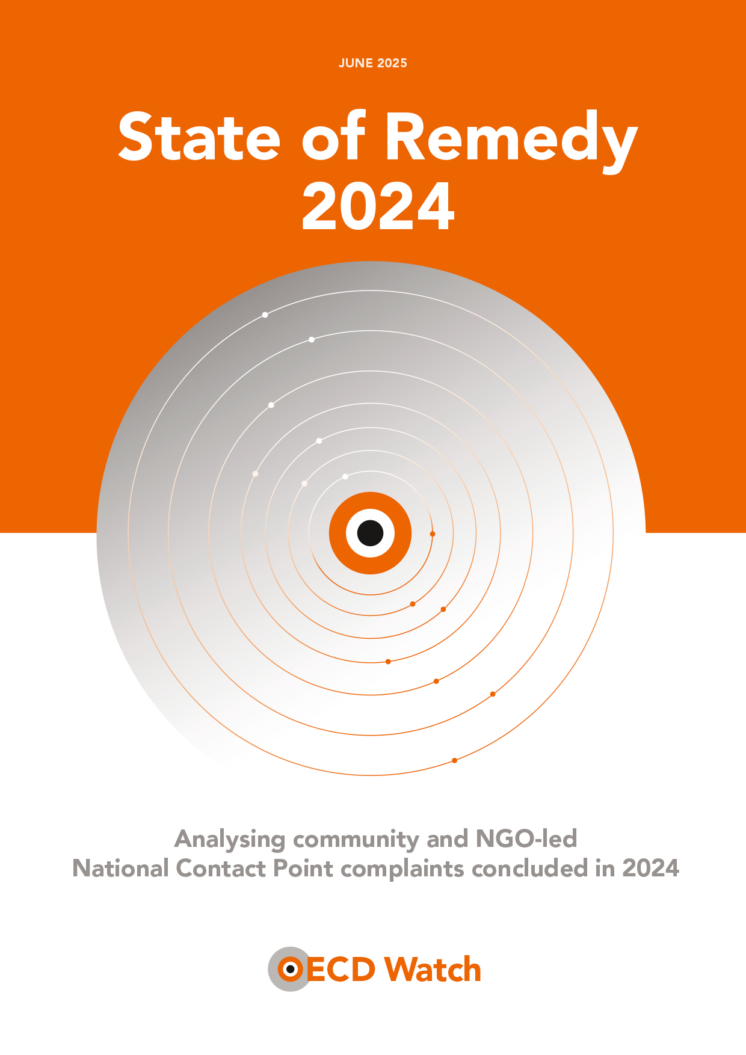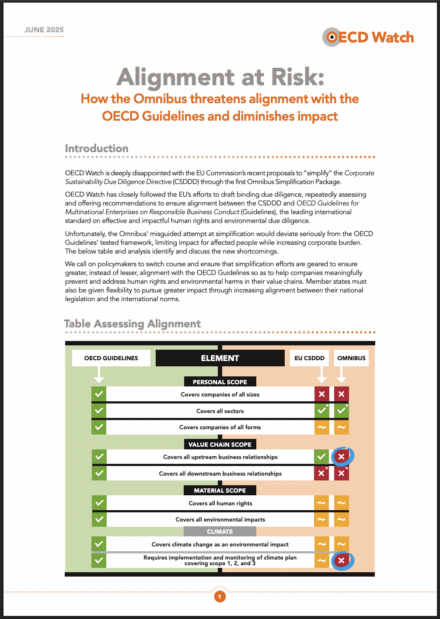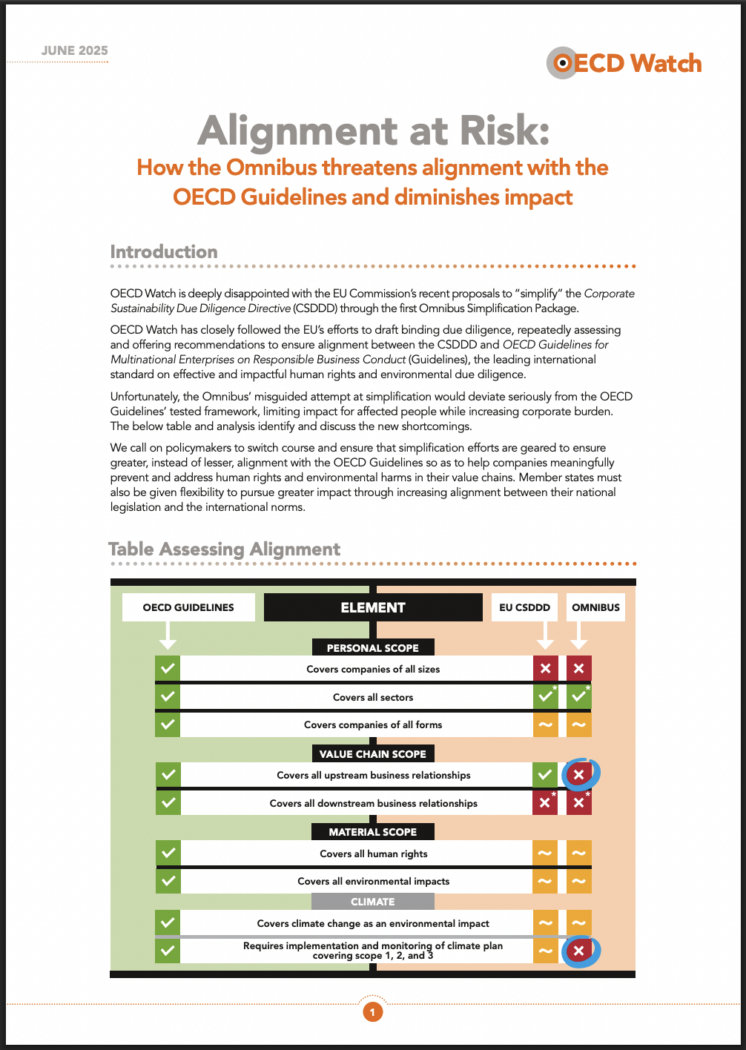Today, as the OECD celebrates the 20 year anniversary of the creation of the National Contact Points (NCPs) for the OECD Guidelines, OECD Watch launches ‘NCP Evaluations’, a project to assess all 49 NCPs on 40 performance criteria. The purpose of the NCP Evaluations project is to provide the public with objective information about the functioning of NCPs, identify gaps in NCP performance, and improve the effectiveness of individual NCPs and the NCP system as a whole. Analysis across NCPs and indicators identifies significant differences between NCPs. While a few individual NCPs meet many (but not all) of the expectations civil society has for them, the NCP system as a whole is underachieving on indicators that matter most to civil society.
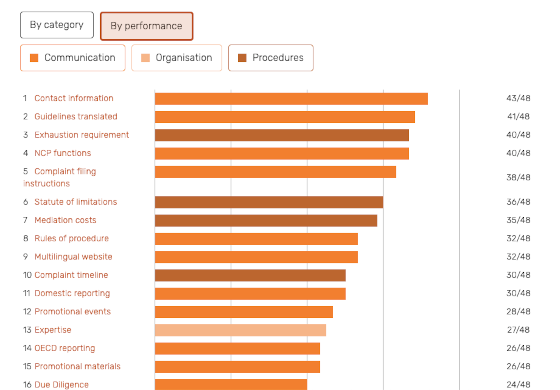
Go to NCP Evaluations
Visit the NCP Evaluations webpage to view the overall performance of NCPs across the 40 indicators, as well as the individual performance of each NCP.
The project
OECD Watch has assessed each NCP according to a set of 40 key performance indicators on organisation and governance, complaint handling procedures, and communications. Some of the indicators are legal requirements of States under the OECD Guidelines, while others represent civil society priorities for effective functioning of NCPs.
The evaluations do not score or rank the NCPs, but rather provide objective information on aspects of NCP organization and functioning that are important to civil society.
Analysis
The NCP Evaluations reveal a number of performance trends. On the whole, NCPs are doing best on very basic aspects of communications. For example, most (but not all) maintain a website with their contact information, most publish the OECD Guidelines in English and a national language, and three-quarters provide instructions on their websites on how to file complaints.
Analysis identifies significant differences between NCPs. While a few individual NCPs meet many (but not all) of the expectations civil society has for them, on the whole the NCP system is woefully underperforming on indicators that matter most to civil society.
For example, just one-third of NCPs consistently follow-up on concluded complaints to verify if companies actually implement agreements and recommendations, and only one-quarter of NCPs meet CSO expectations for transparency in the complaint process. Less than one-third of NCPs issue determinations in complaints as to whether the company has breached the Guidelines, something that is fundamental for establishing clear expectations of companies and vital for investors seeking to invest in responsible companies. Just five governments attach consequences to companies who refuse to engage in good faith in the NCP process.
With regard to structure, three-quarters of NCPs are located in an economics or trade ministry, raising civil society concerns about their impartiality, (perceived) conflict of interest and expertise in complaint-handling.
Read more
- Check out the NCP Evaluation
- Read our analysis
- Look at the used methodology

